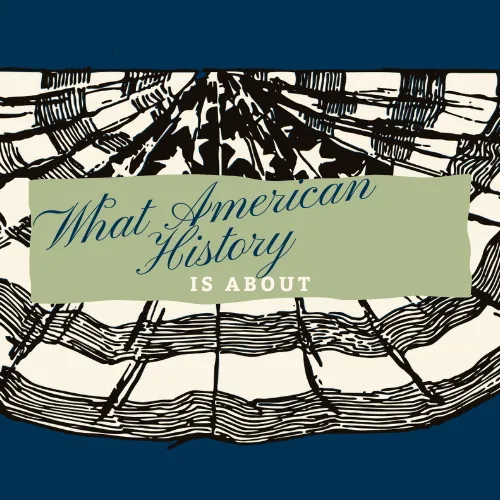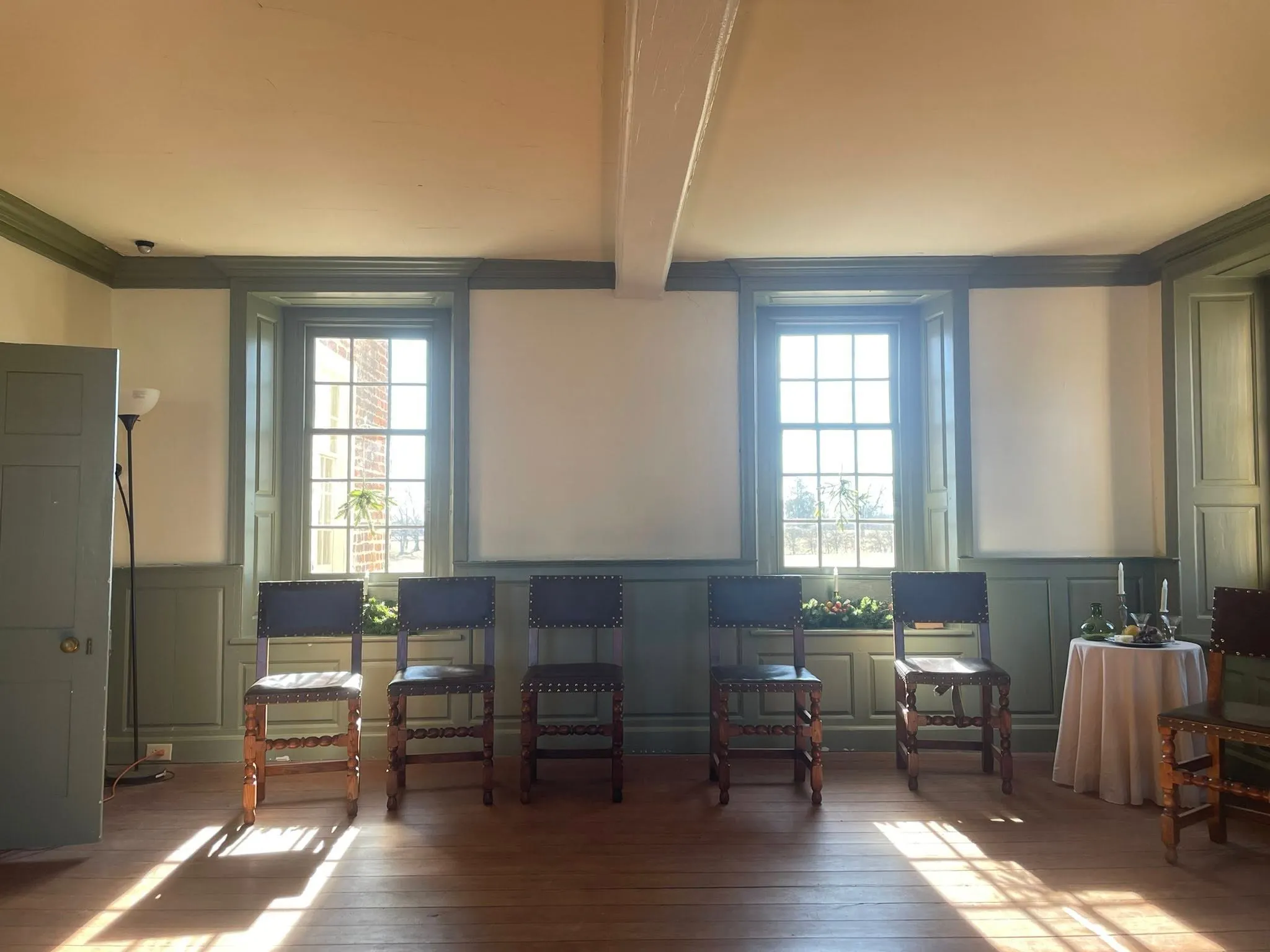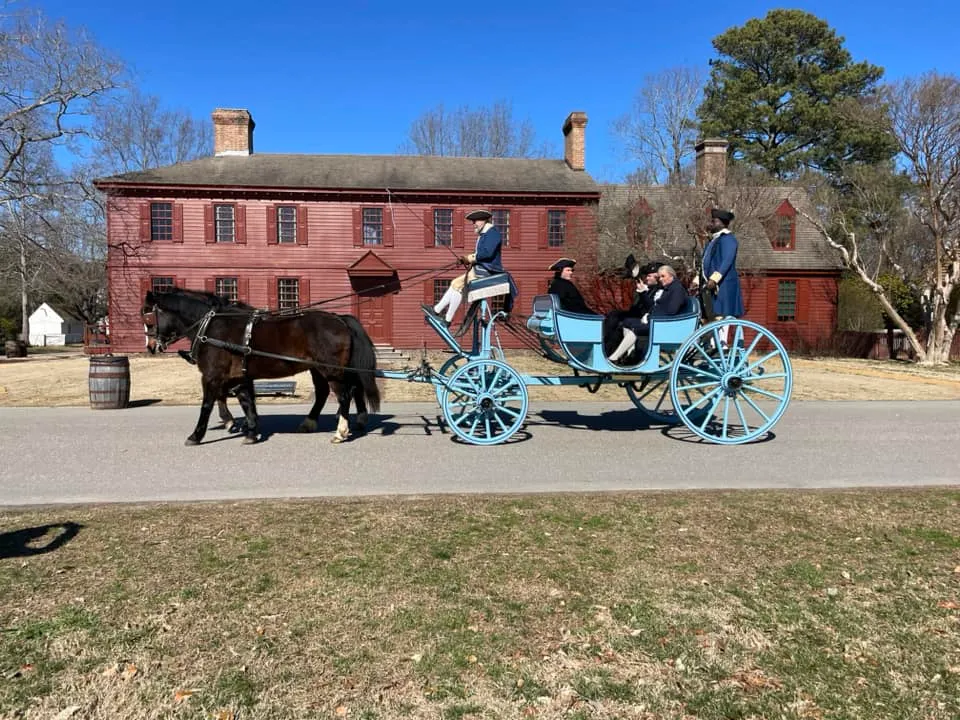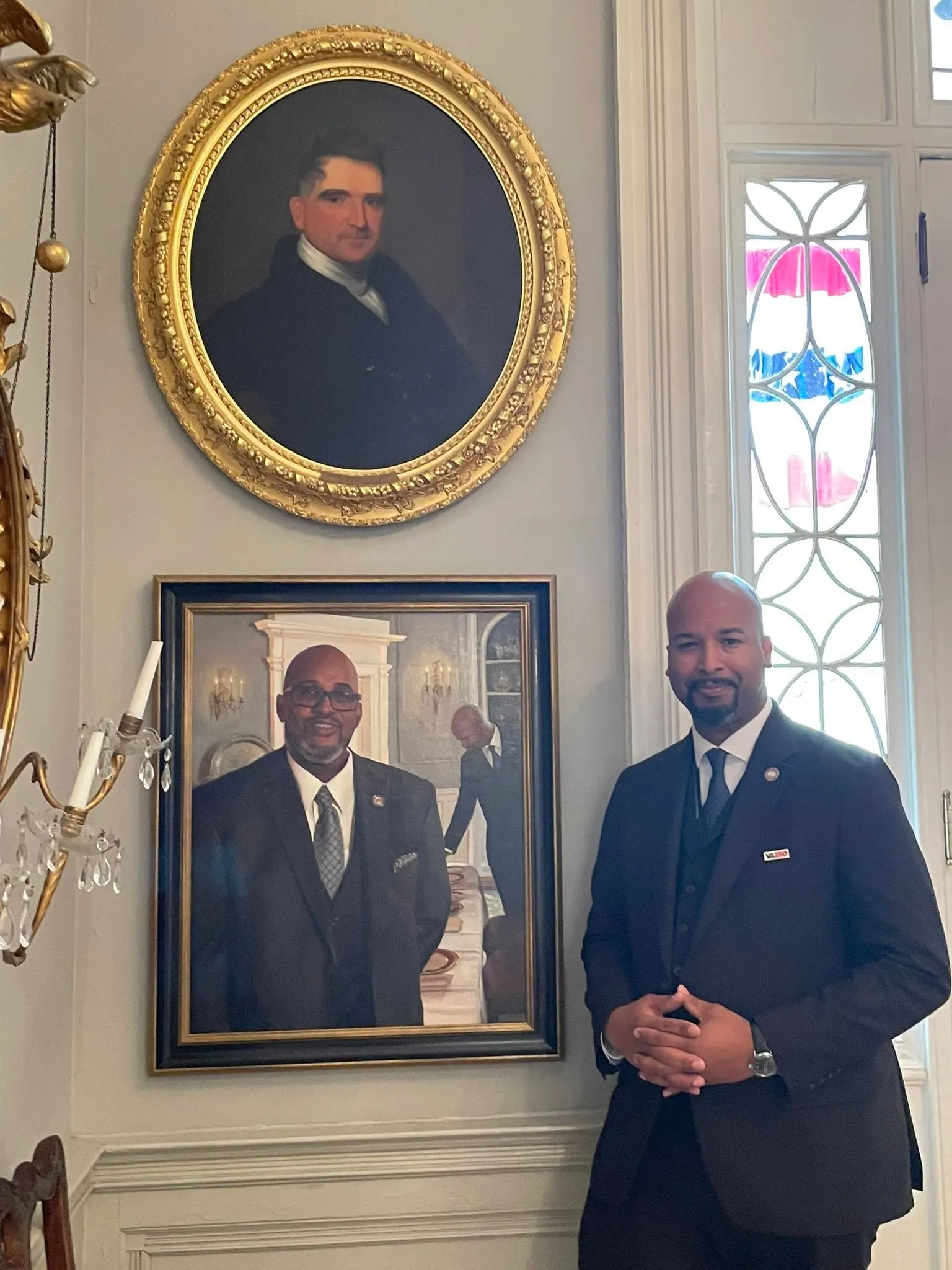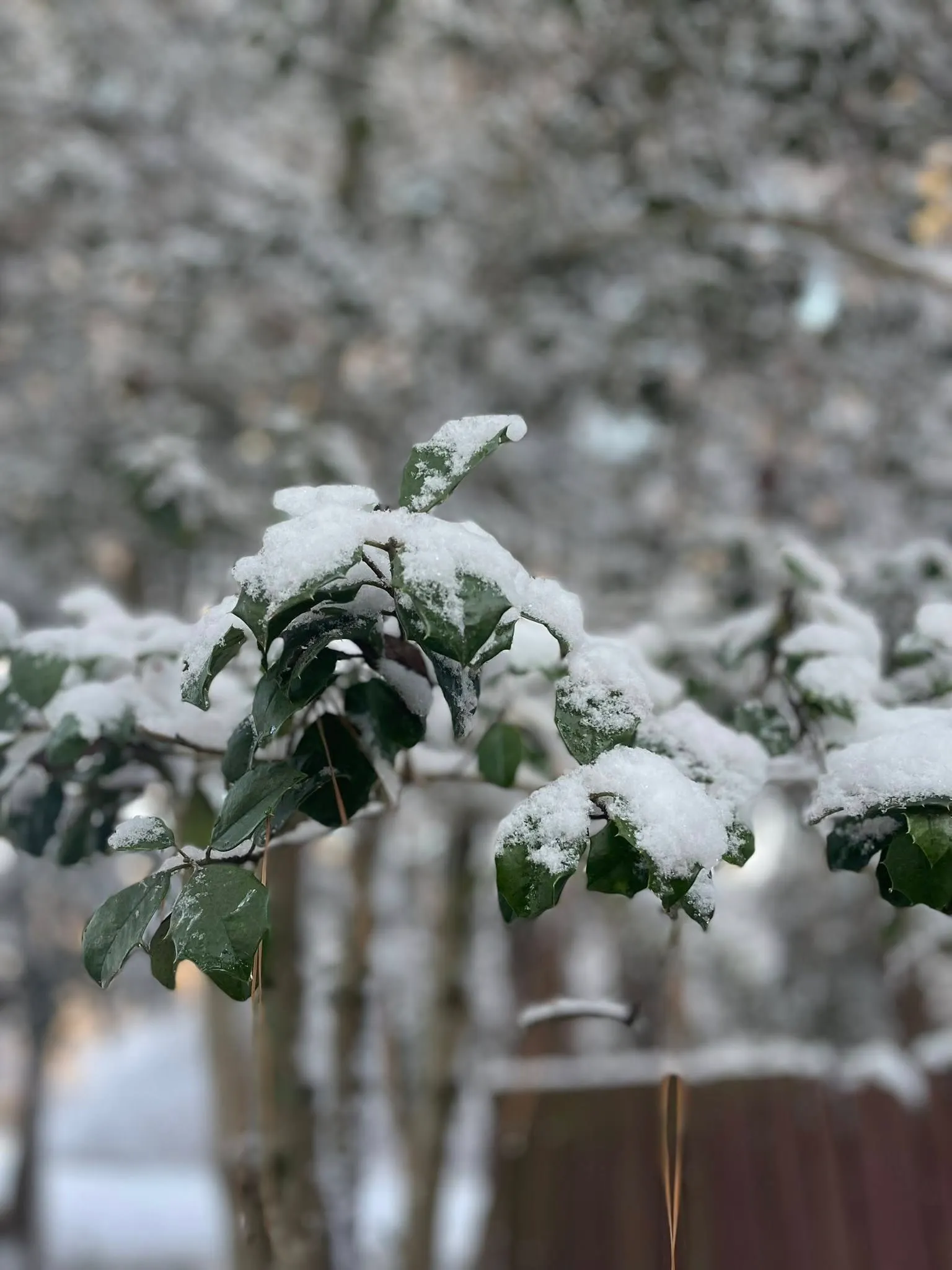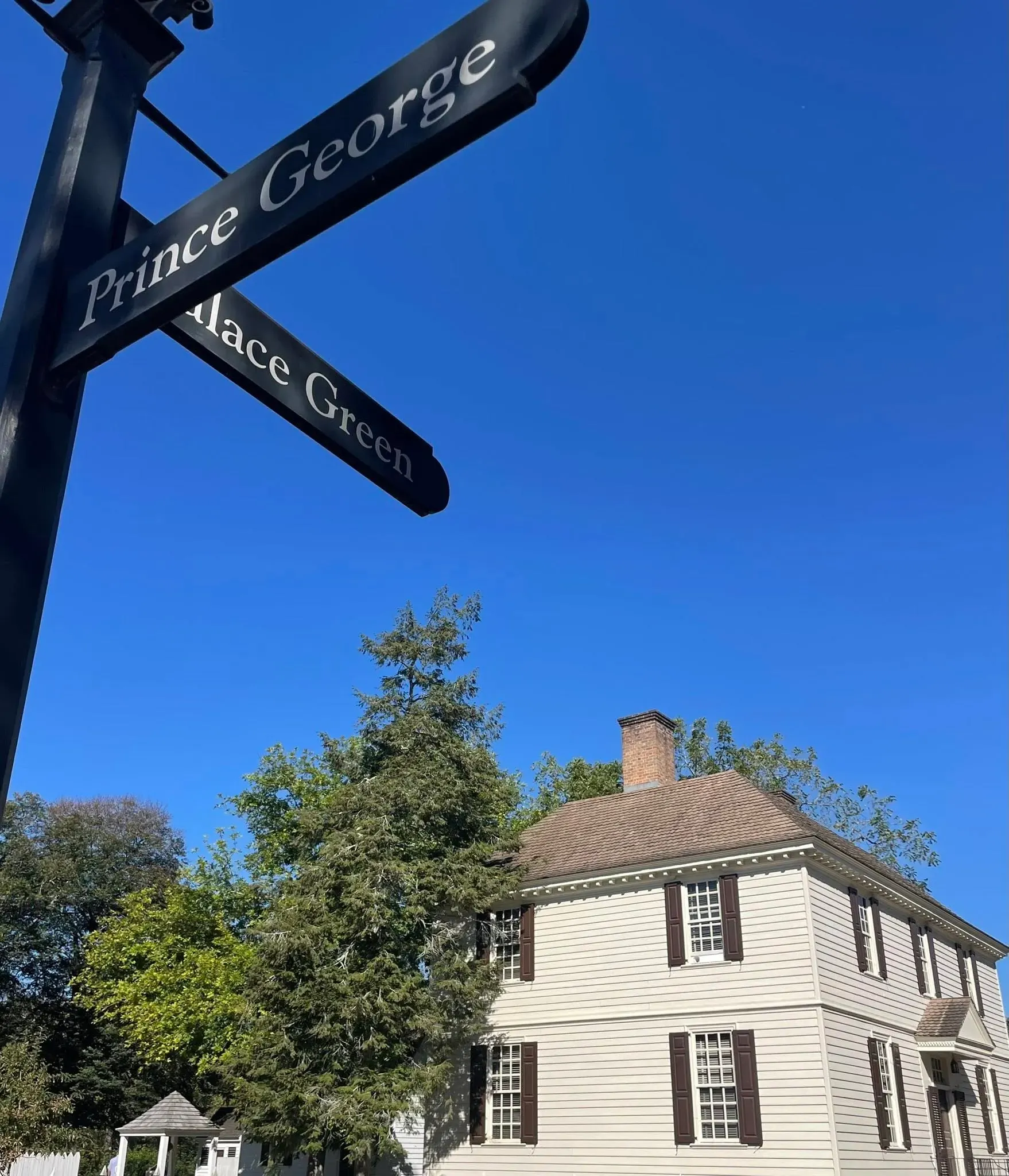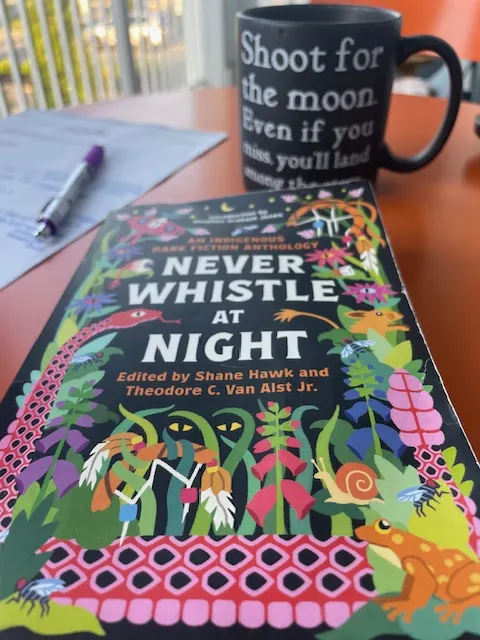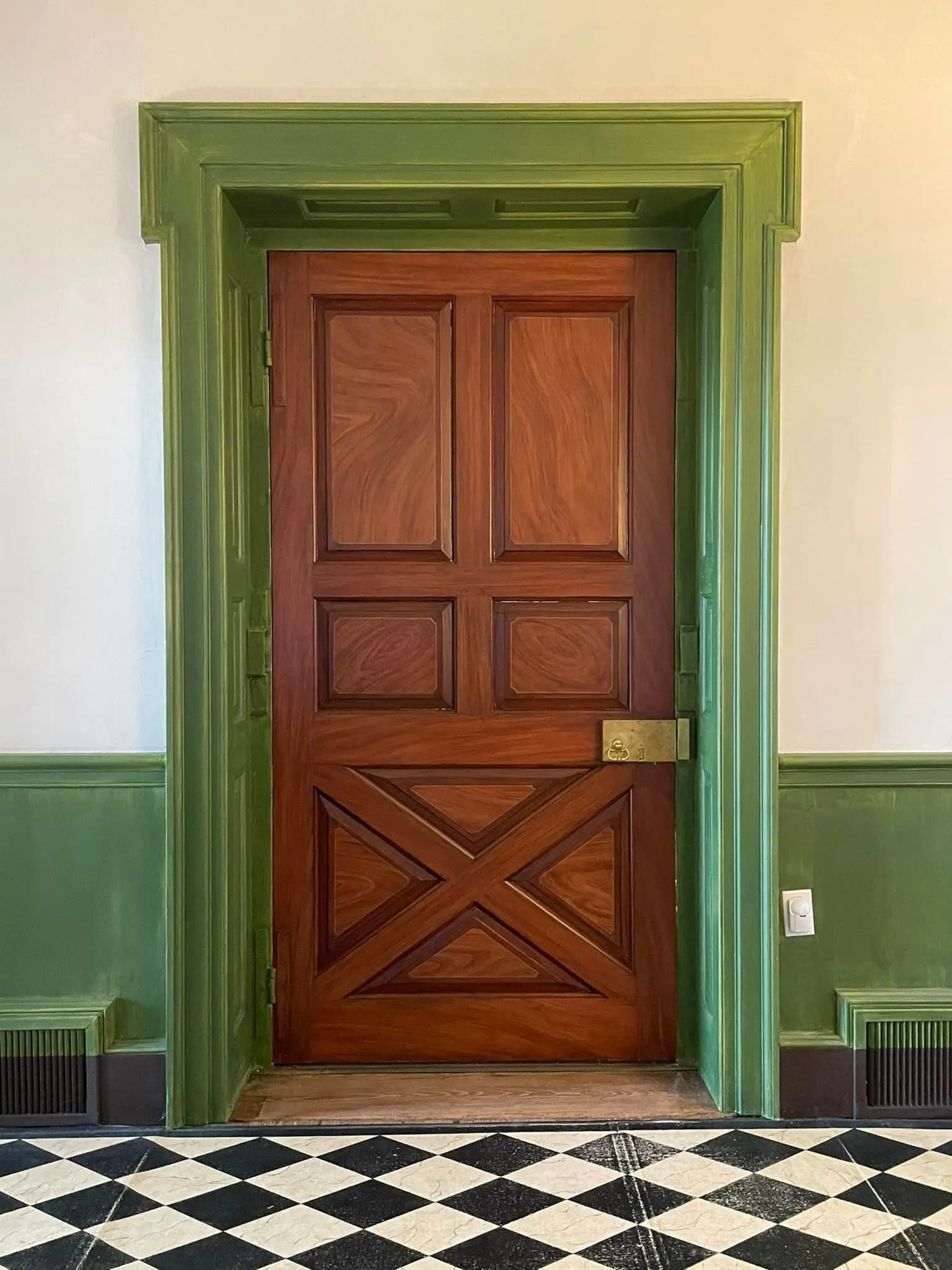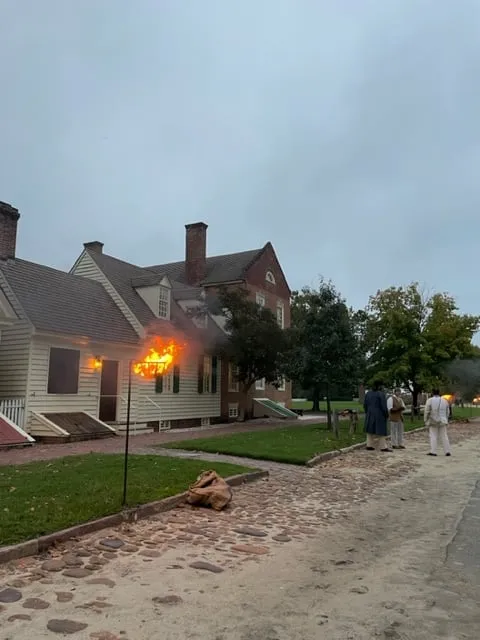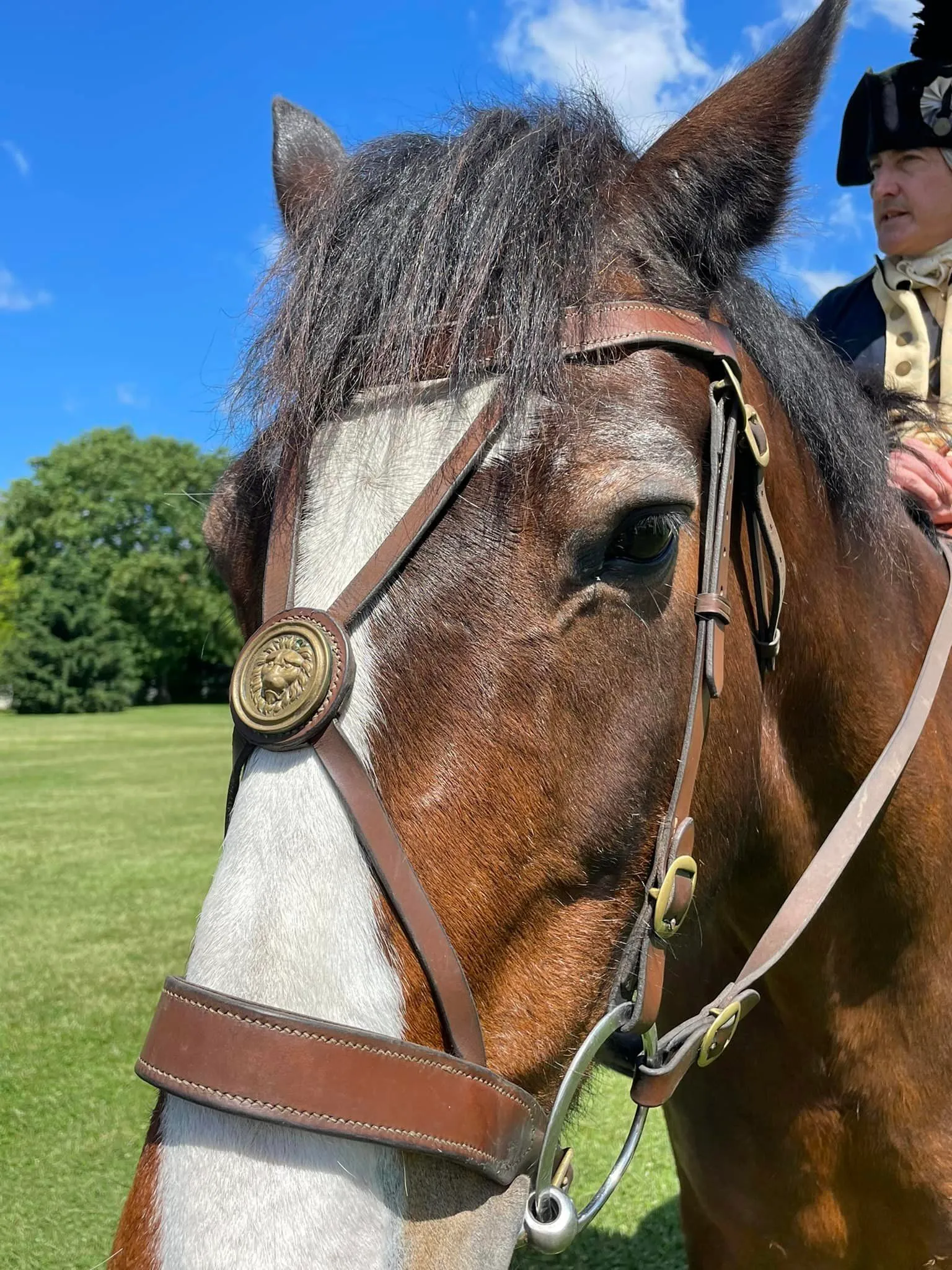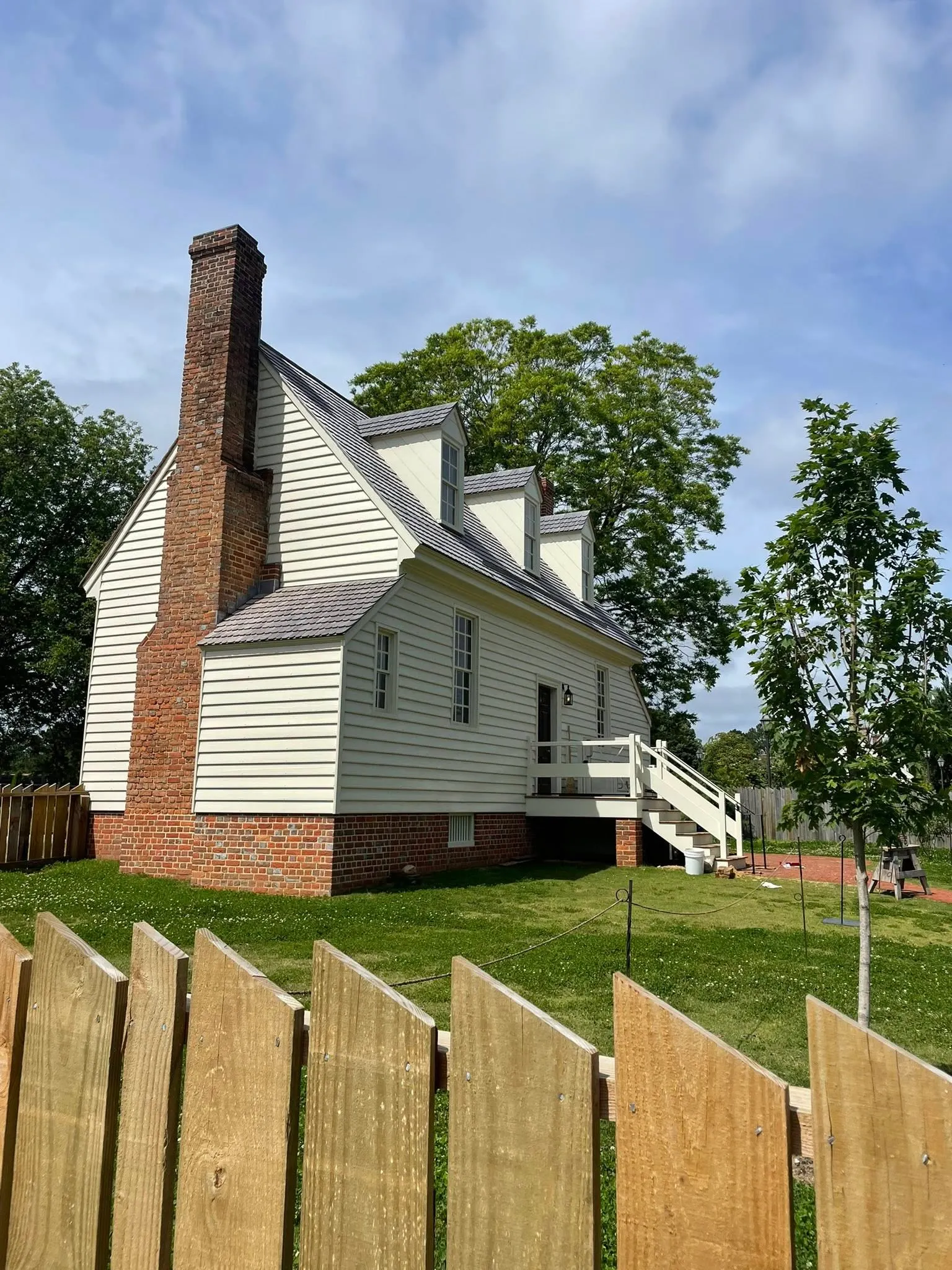Get Excited for National Simplify Your Life Week: Fun Tips to Make American History Easily Accessible!
Organizing the chaos of so many ideas into a blog post is simple...when you have a week to celebrate and use as a writing prompt!
I have a friend that is amazing at sharing content ideas and as a blogger, I love tying them in with all the information I have (chaos!) in my head to streamline a message. I did it for the latest post on my Free At 50 blog -the focus was National Simplifying Your Life Week.
Then it hit me: why not use that idea here?!? So I am. I'm dropping tips on making access to American history (and any type actually!) simple. Or simpler at least. It can be overwhelming.
Necessary disclaimer: As a blogger, I use affiliate links sometimes! I may receive commission from purchases I share; it does not change your price but sometimes you might get a discount.
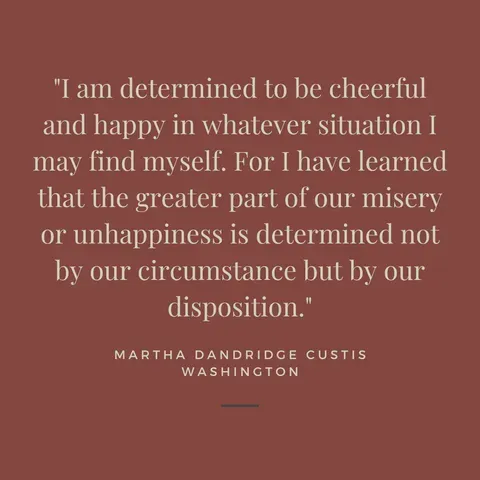
7 Tips for simplifying your access to learning American history.
1 Visit places
Clearly, if you've been checking out this blog or the "about me" tab, you know I love history and seeing it in person! It's why I'm literally living my dream life in Colonial Williamsburg, the largest living history museum in the WORLD.
Something is happening in CW every day and sites are open to tour and wander. Every single day of the year.
But being here means I also have easy access to other places like the Lee Hall Mansion, which inspired a post about a family living in the Tidewater during the Civil War era. More specifically about the home itself.
And, honestly, places you can visit are literally everywhere.
- historical sites
- historic markers
- museums
When you get there, ask questions.
How do you find them? If you're unsure, ask around!
- Restaurants and local coffee shops can be great sources...or anywhere locals hang out really!
- Look up the nearest "visitor's center."
- Or use my fave: TripAdvisor.
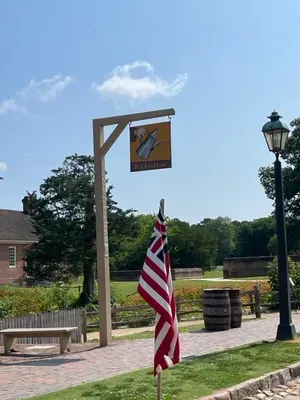
R. Charlton's Coffehouse sign in CW
2 Hit the library or jump online
But make sure the sources you are finding are actually citing primary sources. Or even better are primary sources themselves!
- Letters. My current research for a post on Abigail Adams' letters has me looking at My Dearest Friend: Letters of Abigail and John Adams, however, there are libraries and museums out there that hold originals in their special collections.
- Diaries and journals. Some of my favorite readings are in John Adams' diary, in which he often shares the weather (amongst everything on his mind) and here talks about a severe New England earthquake! But diaries like George Washington's and Landon Carter's give us insight into early American agriculture for example.
- Newspapers- I often check out versions of the Virginia Gazette like these, found online, digitized by the Rockefeller Library. (yes, I know there might be false news but advertising and announcements are excellent resources~as well as looking into the minds and ideas of humans in history... and also- they used to print actual LAWS in the papers, not just opinionated summaries...)
- Drawings and paintings. (knowing the artist may have taken artistic license, but that is an opportunity to dig deeper!) You can see the clothes people wore, the tools people use, the furniture... anything really!
- Inventories, wills, census information, court records, and so forth!
RELATED: My recent post, inspired by Abigail Adams' letters.
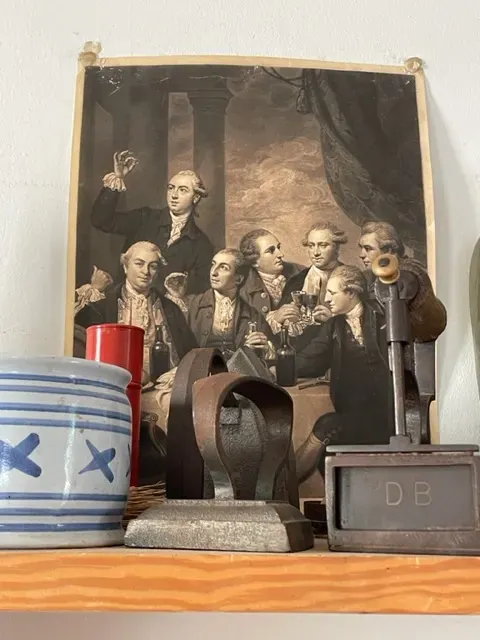
Drawing seen in CW's tailor shop.
3 Learn from people you trust
Nowadays, for me, that is mainly actor/interpreters here in Williamsburg and nearby that are also HISTORIANS. As well as the skilled tradespeople in our historic area. (most apprenticeships seem to last about 7 years!). And I cannot forget our curators, conservators, archaeologists and historians throughout CW.
All of the people here in CW use primary sources and I not only trust them, but thoroughly enjoy hearing history come alive!
Find historians and students of history where you live and in the places you visit! And if you've met any you'd like to tell us about, drop a note in the comment section at the end of the post!
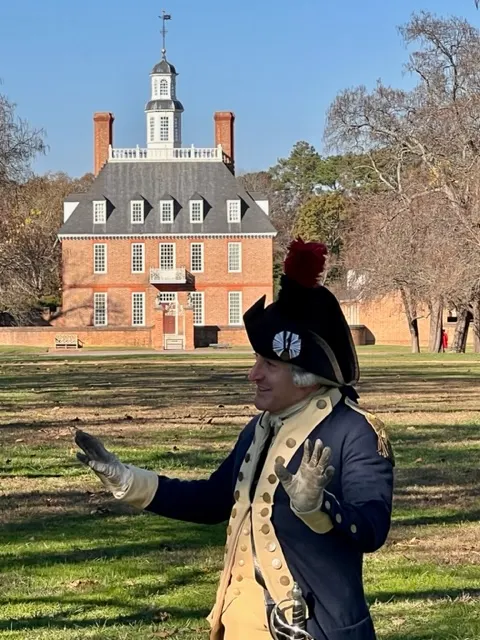
Mark Schneider, portraying the Marquis de Lafayette in CW
4 Listen to legit podcasts
Yes- legit. The online world is full of anything and everything you can think of, as well as many things you haven't yet imagined.
The world of podcasts included. If you're looking into American history on a podcast, understand how the information is obtained and the sources that are cited. Know some may be subjective and/or for entertainment only while others are meant for learning as well.
To kickstart your journey into podcasts on history, I'm dropping one I highly recommend. It's creator is Bryan Austin, who portrays James Madison here in CW and is an historian as well as actor!
Enjoy Let's Be Frank by clicking here. It's history told from the perspective of Benjamin Franklin, with primary sources guiding the content.
About this podcast:
5 Walk through a graveyard, then dig deeper (not literally of course!)
I don't condone digging in a graveyard, but from a research standpoint, I always say: dig deeper!
Personally, I love cemeteries and we have some pretty old ones here in Virginia! But even in Michigan, wandering Mt. Hope Cemetery once in awhile was SO COOL. It's even reviewed on TripAdvisor - and that's how I've found cemeteries in other places when I used to travel during my corporate life and while traveling on vacation.
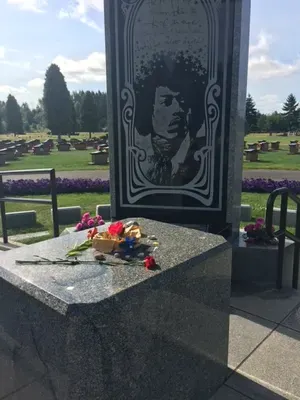
Jimi Hendrix' grave, visited while on a trip to the Pacific Northwest.
Read the gravestones, get a sense of the people. Understand the humans behind the history. Grave markers and the history of a cemetery itself can tell you so much about the people and the place they're buried.
Every cemetery has a story - many stories in fact!
- Hollywood Cemetery in Richmond Virginia is steeped in American history.
- St. John's in Richmond has a program to restore gravestones- historic preservation in action!
- In visiting Forest Lawn while in California, we were blown away by the mausoleum and memorials to members of our Golden Age and beyond.
- And of course, I wrote a whole post about how a grandfather in Maine started Wreaths Across America after flying over Arlington Cemetery as a boy.
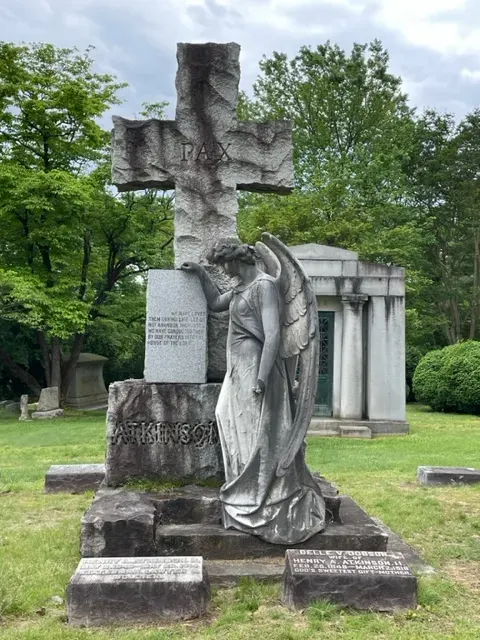
Gravesite at Hollywood Cemetery, Richmond Virginia
6 Sift through the attic or go "estate sale-ing"
You never know what can be found at either place.
Have you ever watched an episode of Antiques Roadshow? I'm just saying. So much of that stuff is found in the attic or at an estate sale. If you find something that piques your curiosity, dig deeper!
7 Click around this blog!
I've created categories from American Independence to Architecture and Buildings. And more.
If I'm missing something that would make finding posts easier for you, feel free to tell me what you'd like to see!
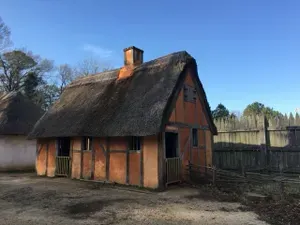
Building inside the fort at Jamestown Settlement.
Conclusion: Start anywhere.
Don't let the idea of so many sources and ways to get a peek into history, or to dive deep into it, overwhelm you.
Start with anything you're interested in, use my tips above and of course, if you end up in a rabbit hole: embrace it and enjoy the journey!
In closing, a few words about living in historic times, directly from Thomas Jefferson (sourced as an early access document- which is temporary- on my favorite website to see original writings)
From Thomas Jefferson to Richard Bruce, 19 February 1823
Monto Feb. 19. 23.
Dear Sir
The use of my hand is so much impaired that I must be brief in acknoleging your favor of the 17th we have lived in times as remarkable as the history of the world has presented. we have had our full share in the events which have passed and have all acted with zeal in the posts assigned to us severally. as Providence intended that such events should take place, we should be thankful they were destined for our times and we chosen as instrunts for effecting them. I salute you with wishes for your better health, & a continuance of life as long as you think it worth enduring.
Did you enjoy this post? Tip me online by clicking here!
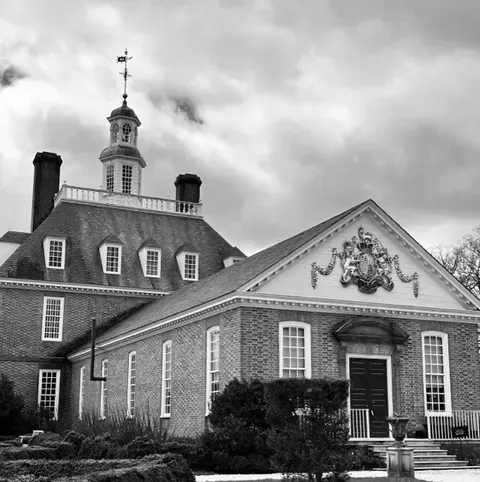
Rear view of the Governor's Palace in CW
There is a huge practical disclaimer to the content on this blog, which is my way of sharing my excitement and basically journaling online.
1) I am not a historian nor an expert. I will let you know I’m relaying the information as I understand and interpret it. The employees of Colonial Williamsburg base their presentations, work, and responses on historical documents and mainly primary sources.
2) I will update for accuracy as history is constant learning. If you have a question about accuracy, please ask me! I will get the answer from the best source I can find.
3) Photo credit to me, Daphne Reznik, for all photos in this post, unless otherwise credited! All photos are personal photos taken in public access locations or with specific permission.
